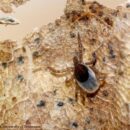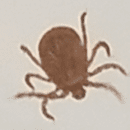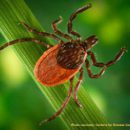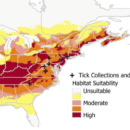There are a number of species of Ticks found in Virginia including the Lonestar Tick, the Blacklegged Tick (also known as the Deer Tick), the American Dog Tick and the Asian Longhorn Tick. The areas of Virginia where these ticks are active varies. … [Read more...]
Pesticides, Pollinators, and Pestilence: Protecting Public Health and Pollinators
Tick and mosquito control provides important public health protection, but can also affect pollinator populations. The effects are often dependent on specific local conditions, such as how close the pesticide application is to places pollinators … [Read more...]
Controlling Mosquitoes and Ticks in Your Yard Without Pesticides
ZOOM PRESENTATION Learn pesticide-free best management practices to control mosquitoes and ticks in your yard and keep them away from you and your family. Extension Master Gardener Joan McIntyre explains how to identify mosquitoes and ticks … [Read more...]
Permethrin-Treated Clothing May Disable Ticks, Study Finds CDC research suggests that wearing these items might stop the insects from biting you
Shirts, pants, hats, and other clothing treated with the insecticide known as permethrin have been touted for 15 years as a way to prevent the tick bites that can lead to Lyme disease, Rocky Mountain spotted fever, and more. … [Read more...]
Three SURPRISING Things I Learned About Asian Longhorned Ticks
Late in the evening Sunday August 12. Only 4 more TickSpotters pictures left to look at today. But wait, what’s THAT one. This TickSpotter had sent in something different; a simple picture of a suspicious-looking tick found on their dog … [Read more...]
Managing the Tick Problem
Ticks have fast become the pest of greatest personal health concern to gardeners and outdoor people of all stripes. With good reason. They are everywhere, hard to detect and can carry debilitating, even deadly diseases. While there is no silver … [Read more...]
Invasive tick is ‘here to stay,’ and here’s where it could spread next
An invasive tick species, new to the U.S., has already popped up in nine states, and a new study suggests that the species could spread much further. This tick, called the Asian longhorned tick (Haemaphysalis longicornis), is native to Asia and was … [Read more...]




